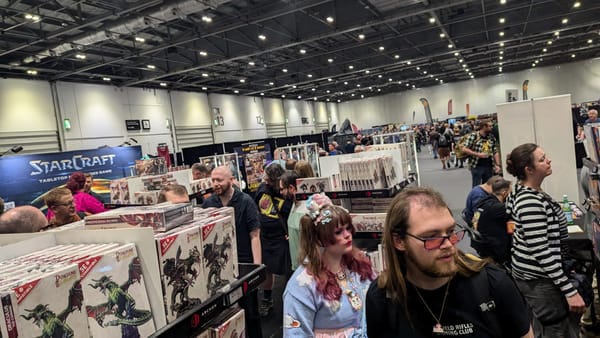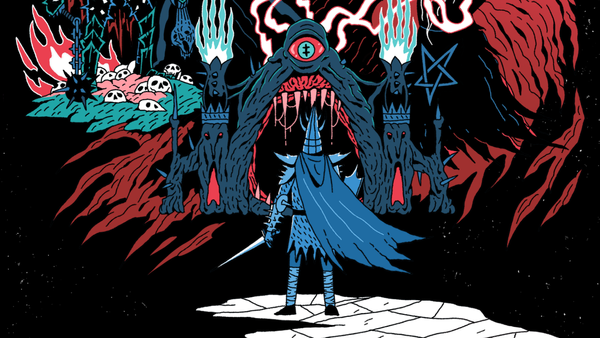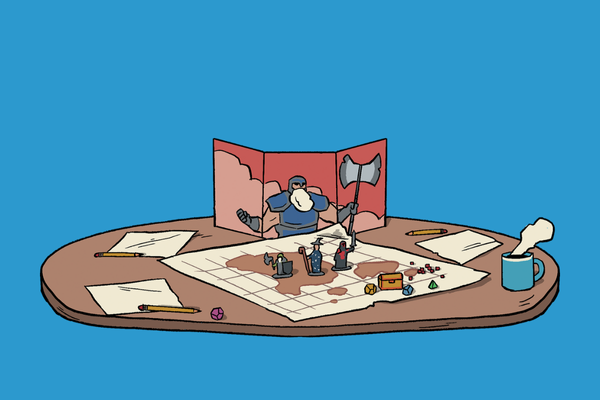Rapscallion finally sets sail
For game writer, designer, and artist Whistler, queerness and piracy go hand in bloody hand.
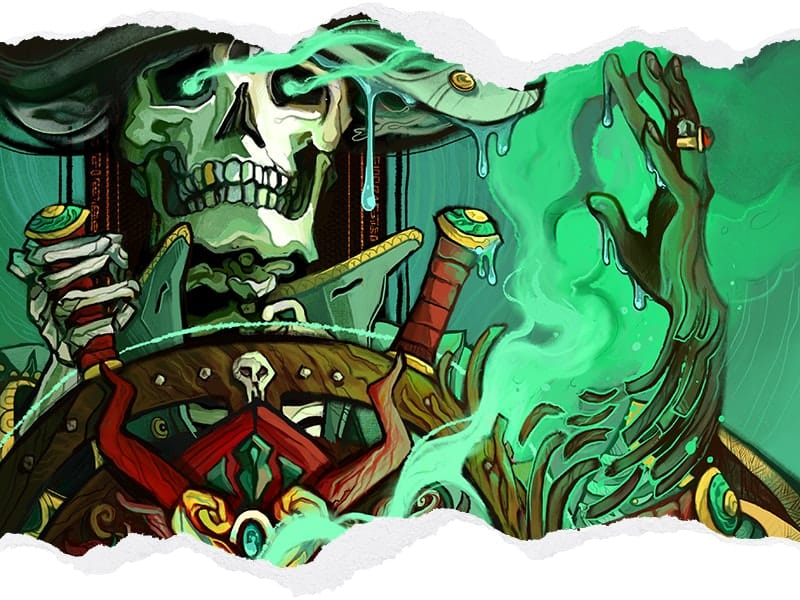
Rapscallion has had a long, winding course to publication. I first got my hands on an ashcan copy of the piratical tabletop game of swashbuckling in 2019, as compensation for running some games at Pax Unplugged for Magpie Games. I was immediately drawn into the magical world of Whistler’s making; a touch of One Piece, not quite Black Sails, near enough to Pirates of the Caribbean, and a little bit Treasure Planet, and full of an immensely unique magic that, at its core, emphasized a rebellion against the status quo.
Slightly delayed by the Avatar Legends RPG, Rapscallion is finally getting back into the production pipeline. The crowdfunding campaign has been wildly successful, and has raised nearly six times its goal. Having been a fan of Rapscallion since it was just a slim ashcan, I was excited to sit down with Whistler, the author and illustrator, for an interview about their game design process, inspirations, and what it means to be a pirate.
(Author’s Note: Whistler uses any pronouns. For the purposes of standardization, we will be using they/them pronouns for Whistler. We received their permission to do so.)
Like many designers and gamers, Whistler was introduced to tabletop roleplaying games through their friendly local game store, where they ran a D&D program for children and adults—an event they still run today, albeit at the local library. They’ve been tinkering with games since college—they had the audacity to work on a Changeling the Lost LARP (an endeavor I wouldn’t recommend anyone attempt, as that ruleset is so absurdly finicky it borders on torturous)—but Rapscallion is their first full-length manuscript.
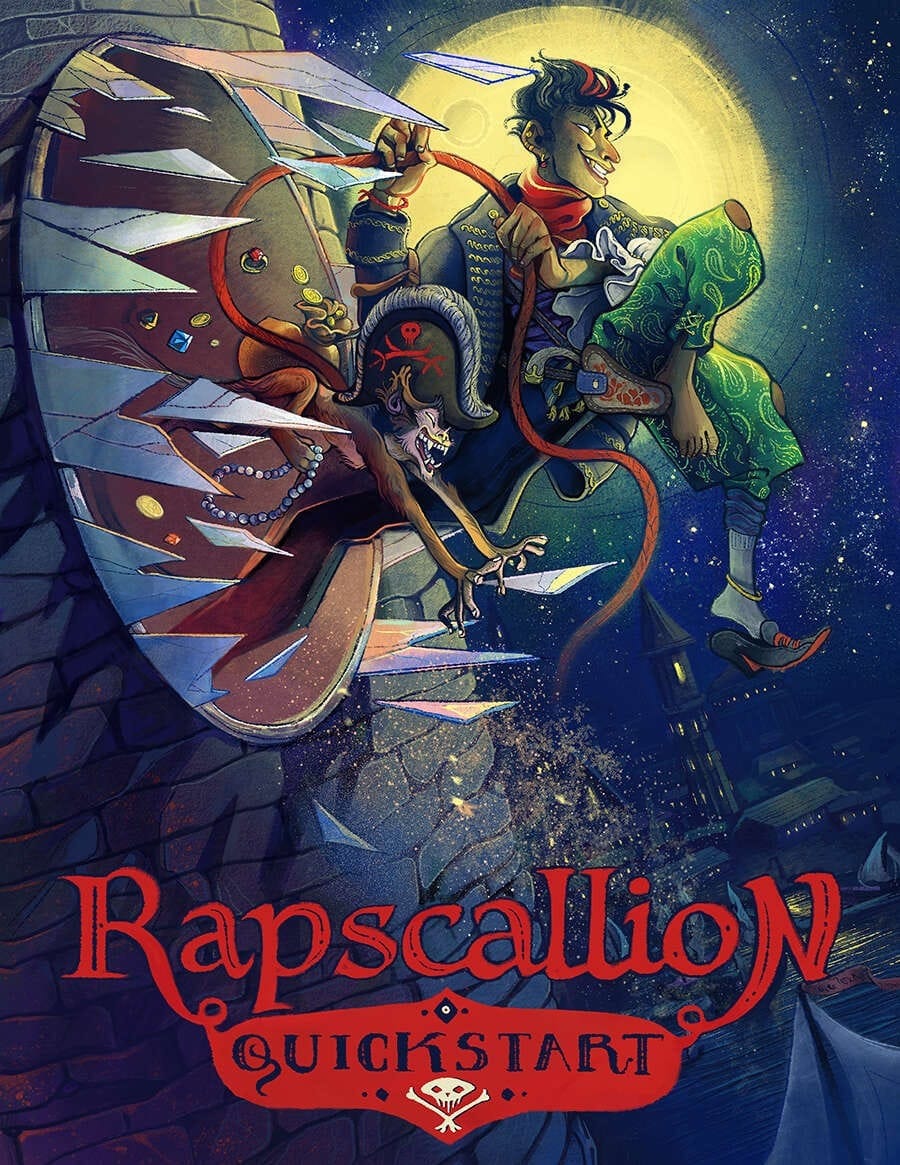
They got their hands on Seventh Sea, and were a little disappointed. Not because the game was disappointing, but because they just wanted something different. “I didn’t realize until I read Seventh Sea that my idea of piracy was quite specific and did not get covered by Seventh Sea.” Whistler’s idea of pirates is rooted “in a more nebulous sense, more swashbuckling. More like… an alternate universe, fantastical Europe, with crazy buccaneer politics. A bunch of pirates who are on a sea and doing things with their ship and having piratical feelings about it. And that was, I think, the start of Rapscallion.”
There are a lot of games out there that deal with piracy as an alternative to the traditional money-making methods, that create an image of a pirate as just another kind of capitalist fighting to get as much gold as possible. Often in media this gets undercut by more romantic themes, but there’s a dearth of longer, experiential tabletop games that engage with ideas of piracy as philosophical rebellion.


